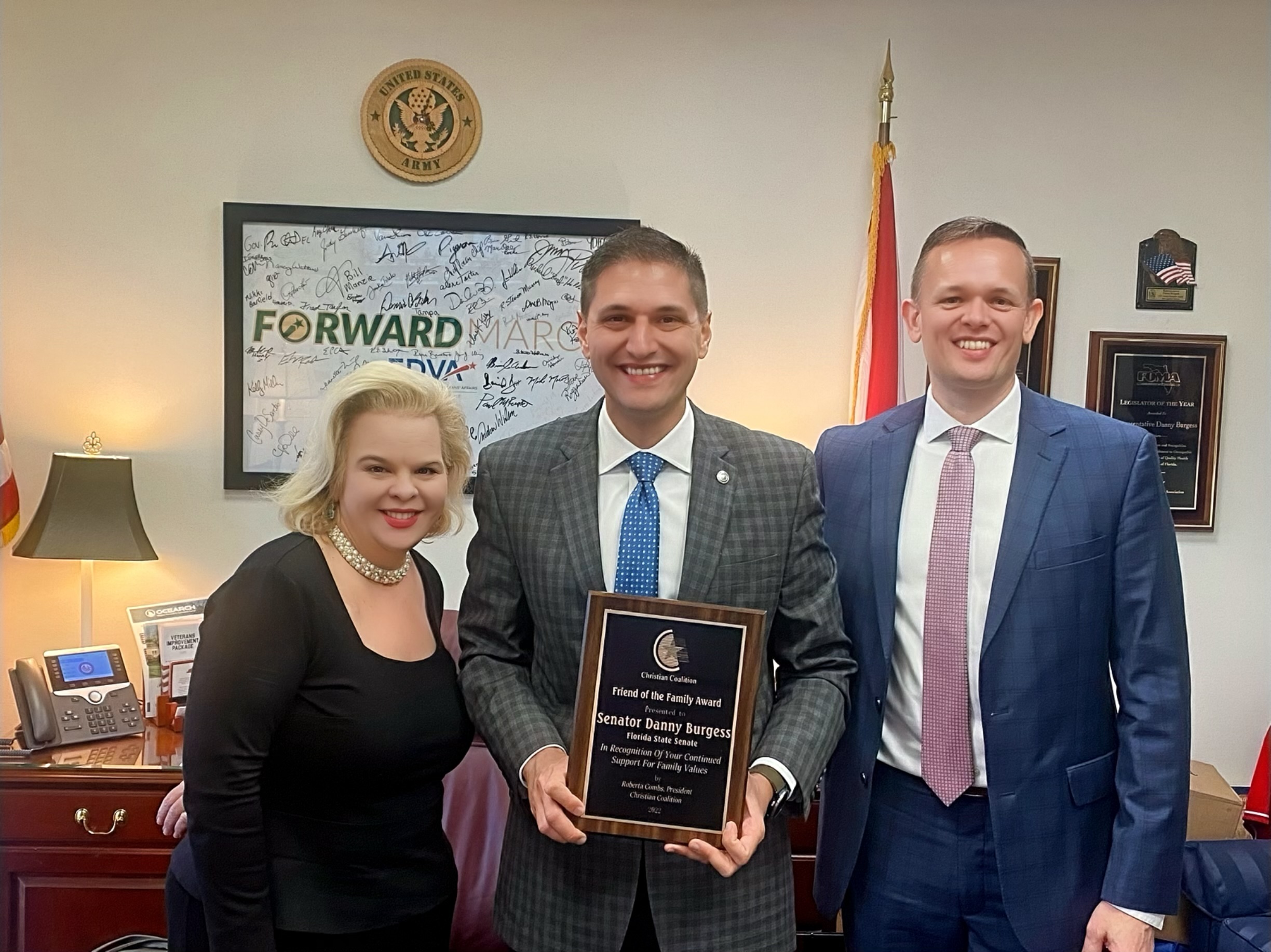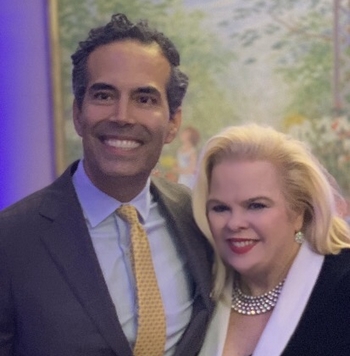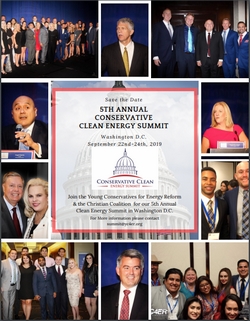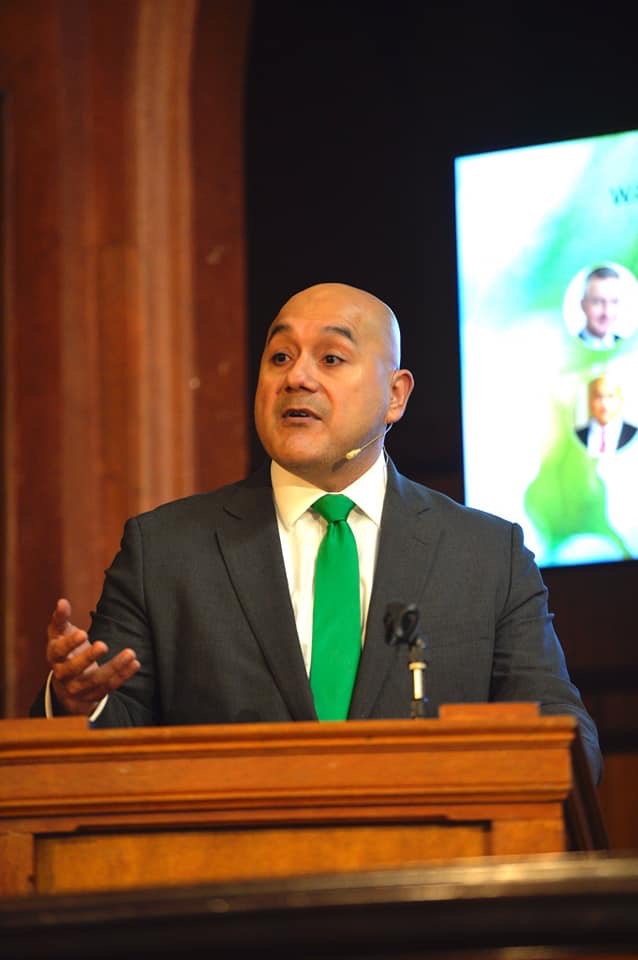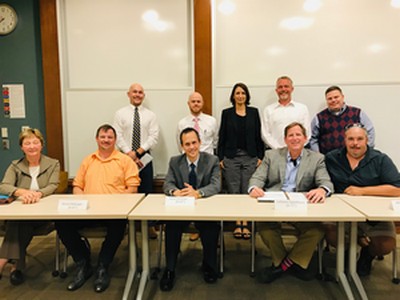 By Evan Lehmann, E&E reporter
By Evan Lehmann, E&E reporter
A large roomful of Christian conservative activists gathered in a hotel basement yesterday to bone up on the positions they would carry into their meetings with lawmakers and aides.
They heard about Islamic fundamentalists, statistics about the likelihood of being killed in a fuel convoy and the idea that exporting U.S. oil is the nation’s best “weapon” against Iran and Russia, if you exclude the options with bullets.
It was a summit on clean energy for young conservatives, which focused on national security more than climate change. According to some of these activists, the event reveals a comfortable way for a younger generation of Republicans to speak about “energy freedom” like solar power and growing amounts of domestic natural gas for transportation and electricity.
Environmental aspects are present, but they take a back seat to concerns about helping poor families pay the electric bills and keeping Americans safe from bullies overseas.
“It’s not a climate issue,” said Tyler Duvelius, 22, the state energy director for the Ohio chapter of the Christian Coalition, which helped organize the event. “It’s a family issue.”
Perhaps 200 or 300 hundred activists attended the Clean Energy Summit organized by the Christian Coalition and Young Conservatives for Energy Reform. Afterward, they intended to meet with lawmakers and their aides to convey their support for cleaner sources of energy.
Renewable energy was a prominent theme. So was oil drilling. Solar speakers received applause, alluding to the strong support among conservatives for distributed energy systems that can power homes without much help from utilities.
Perhaps more popular were discussions about the nation’s booming oil and gas production. Lawmakers like Sens. John McCain (R-Ariz.) and Tim Scott (R-S.C.) pointed to a future of growing American influence that they say can squeeze the economies of Russia and Iran. Both lawmakers support ending the longtime ban against exporting domestic oil.
GOP promotes clean energy jobs
McCain, who campaigned for president in 2008 on a platform that included a cap-and-trade program to reduce carbon dioxide emissions, didn’t mention climate change or renewable energy.
There were also presentations advocating the expansion of the production tax credit and the investment tax credit. The PTC for wind expired last year, and the ITC is scheduled to drop from providing 30 percent of the cost of a solar project to 10 percent at the end of 2016.
In North Carolina — where nearly 400 megawatts of solar electric capacity was installed last year, making it the fourth-largest producer in the country — some Republicans talk optimistically about a clean energy future.
“Jobs,” said Sen. Richard Burr (R-N.C.). “When we talk about this transformation to clean energy, we’re talking about creating jobs in the United States.”
Energy efficiency was also a popular theme. Sen. Rob Portman (R-Ohio), who is pushing an efficiency bill with Sen. Jeanne Shaheen (D-N.H.), said there are better ways to address wasted energy and greenhouse gas emissions than President Obama’s power plant regulations known as the Clean Power Plan.
He also pointed to the Tropical Forest Conservation Act, a law passed in 1998 in which the United States forgives debt to equatorial nations in exchange for not clearing forest tracts. Portman, who introduced the original bill as a member of the House, is trying to reauthorize the initiative and expand it to include coral reefs. He told the group yesterday that deforestation is the third- or fourth-largest source of atmospheric carbon dioxide.
“Those groups come in and you end up protecting these forests that would otherwise be burned with huge increases in CO2,” Portman said. “That doesn’t cost a single job, folks.”
Warming threatens military bases
One of the clearest voices on climate change came from a military veteran. Retired Air Force Gen. Ronald Keys, whose last assignment was commander of the Air Combat Command, told the group that the military sees rising temperatures as a threat to its operations, training and bases.
Solar panels and small wind turbines can reduce the need for convoys to carry diesel fuel for electric generators needed to run computers, lights and air conditioning in hostile regions, he said. For every 24 convoys, one soldier is killed or badly injured, making combat vulnerability “a big deal for us,” Keys said.
Climate change is also affecting stateside bases. Up to 30 facilities are exposed to the impacts of sea-level rise like erosion and flooding, he said.
“That’s gonna be a problem for Virginia politicians,” Keys said, “because at some point someone may come to them and say, ‘You know, let’s pick up Langley Air Force Base lock, stock and barrel, and we’re gonna move it to Oklahoma.'”
Meanwhile, drier conditions in the West are complicating training exercises that use ordnances that might ignite forest fires, he said.
In an interview after the event, Keys expressed frustration with the lack of discussion about climate change in Congress. He serves as chairman of the CNA Military Advisory Board, a group of 17 retired generals and admirals overseeing research into the threat of warming to national security.
It determined in 2007 that climate change is a “threat multiplier.” In a report last year, the group said the risks of warming are “as serious” as some of the nation’s greatest challenges, including its deterrence policies toward a nuclear-armed Soviet Union and current-day terrorism.
Keys faulted Republican lawmakers yesterday for promoting uninhibited oil production, without considering the impact it would have on greenhouse gases. He noted that some of those same lawmakers face rising sea levels that could impact military bases in their states. Those vulnerabilities will be considered when the Department of Defense looks at which bases it should shutter in the future, he said.
“You betcha,” Keys said in the interview. “People will be worried about losing their bases. Well, they should have been worried about that 15 years ago and done something about it.”

